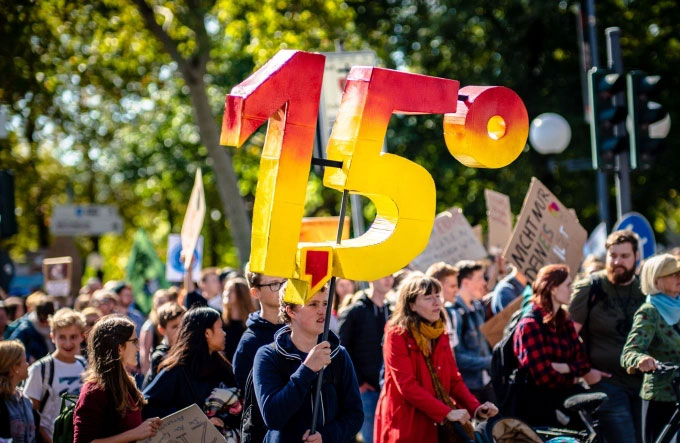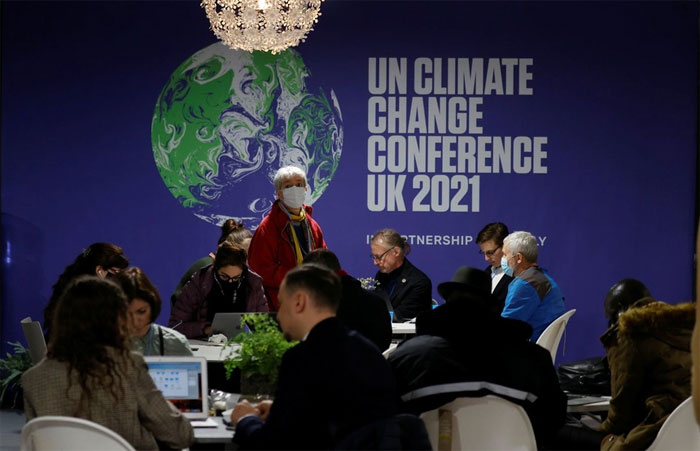Many leaders expressed their hopes that the G20 summit in Rome would yield more positive outcomes. However, it seems that the chance to keep global warming below 1.5 degrees Celsius is slipping away.
The summit of the Group of Twenty (G20) failed to produce a climate plan to ensure the survival of the planet, leading figures at the COP26 climate negotiations told the Guardian.
Some leaders, representing over a billion people most at risk from climate change, also expressed that they hoped for more than what transpired at the summit in Rome. Yet now, all that remains is “concern.”
The prospect of limiting global warming to 1.5 degrees Celsius above pre-industrial levels, a critical threshold that scientists refer to as the “planetary boundary”, is gradually fading ahead of the COP26 conference in Glasgow, Scotland, the Guardian reported.
“From what I see, it seems we are going to exceed 1.5 degrees Celsius,” said Gaston Browne, Prime Minister of Antigua and Barbuda, and President of the Alliance of Small Island States, representing 39 countries. “We are very concerned about that. This is an issue of our survival.”

The COP26 conference is an annual event organized by the United Nations to assess global responses to climate change. (Photo: AP).
“This progress is still not enough”
Mr. Browne believes that the influence of private sector interests has hindered the G20 from producing better plans, emphasizing that developed countries will also bear the consequences of climate change.
“We are here to save the planet, not to protect profits,” he stated, referring to multinational corporations and powerful lobbying groups benefitting from fossil fuel subsidies.
According to some analysts, the G20 summit in Rome made significant strides, with commitments to achieve net-zero emissions by around mid-century and actions in this decade to keep global temperatures from rising more than 1.5 degrees Celsius.
However, poorer countries reported that these promises did not come with clear plans.
They called on G20 leaders to take more ambitious actions to cut greenhouse gas emissions during two days of talks with over 100 heads of state in Glasgow, followed by nearly two weeks of discussions with senior officials.
“I am very worried, but still hopeful,” Mr. Browne said.
In agreement, Sonam Wangdi, Chair of the Least Developed Countries Group, representing over a billion people globally, stated that so far, the progress to save the Earth “is certainly not enough.”
“We are on a long journey towards 1.5 degrees Celsius. We need them (developed countries) to accelerate and achieve this ambition,” he said.

Climate change protest in Bonn, Germany. (Photo: Unsplash).
Meanwhile, Steve Victor, Environment Minister of Palau, stated that the G20 has fallen far behind the targets it should be reaching to ensure a safe future for the people of developing small island nations.
“The G20 produces 80% of global emissions. They are the most important group to ensure we can stay on track towards a 1.5-degree future.”
He added that G20 countries should agree to phase out coal consumption and stop subsidizing fossil fuels.
Ripple Effects
At levels above 1.5 degrees Celsius, many small islands will face flooding due to rising sea levels and intense storms, but Mr. Browne noted that developed countries are also at risk.
“Many countries in this group also have coastal areas,” he pointed out.
Bruce Billimon, Health Minister of the Marshall Islands, also shared: “The impacts of climate change will not only be felt in countries like ours. I believe it will create a ripple effect, so in the coming years, all countries in the G20 will be affected.”
He mentioned that at COP26, developing countries will have the opportunity to present these concerns to G20 leaders during the in-person meeting in Glasgow.

Delegates wearing masks at the UN climate change conference COP26. (Photo: Reuters).
Many G20 officials feel they made significant progress at last week’s summit in Rome.
The G20, which includes fossil fuel-producing countries like Russia and Saudi Arabia, as well as the world’s largest emitter, China, agreed to take action in this decade against climate change. According to Tom Burke, co-founder of the climate change research organization E3G, this is a positive shift.
“The important phrase in the recent statements is ‘in this decade.’ Previously, they only talked about 2050, which is too far off,” he noted.
Indian Prime Minister Narendra Modi surprised delegates at the COP26 Climate Summit with a commitment to achieve net-zero greenhouse gas emissions by 2070. However, this timeline is two decades later than expected.
Chinese President Xi Jinping also called on developed countries on November 1 to do more to help developing nations cope with climate change but did not make any commitments regarding emissions reductions.
According to Minister Victor of Palau, the new changes indicate that G20 countries are also feeling the “urgency” intensifying.
This is a political signal that adds momentum to help achieve agreements at the upcoming COP26 conference, Victor stated.
“This decade is likely to be the decisive decade in history. If we do not halve emissions by 2030, the chance to limit global warming to 1.5 degrees Celsius along with a sustainable future will slip away,” he emphasized.


















































